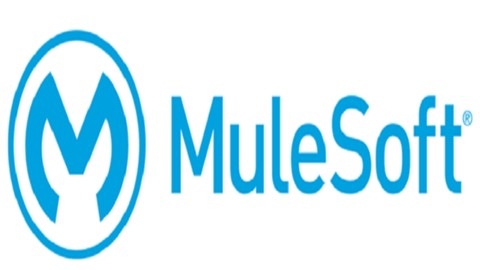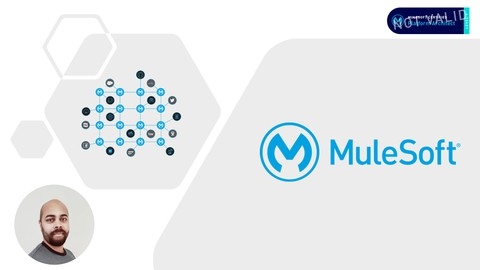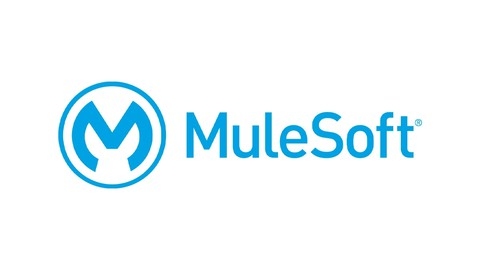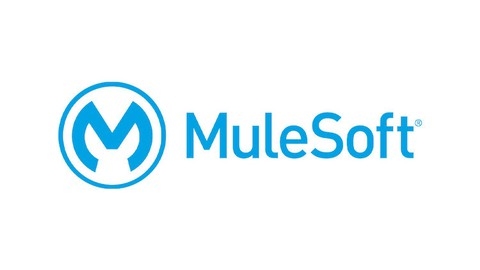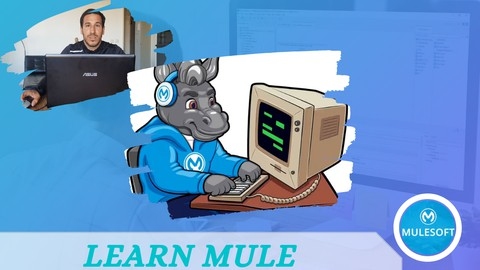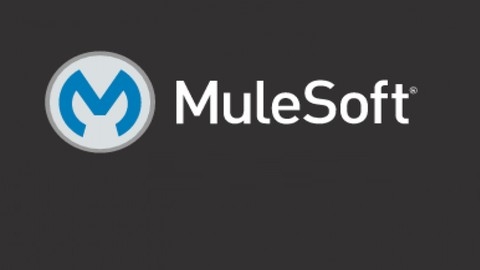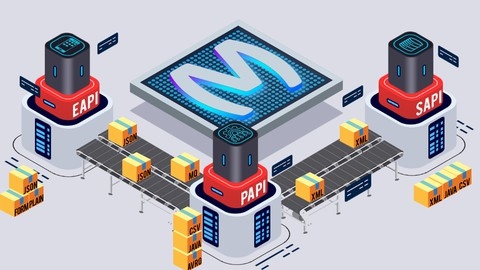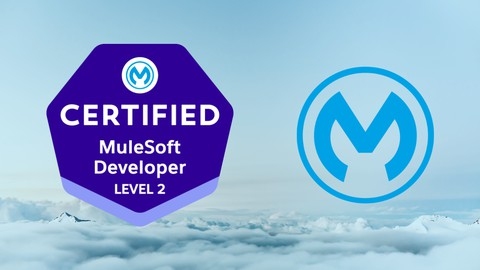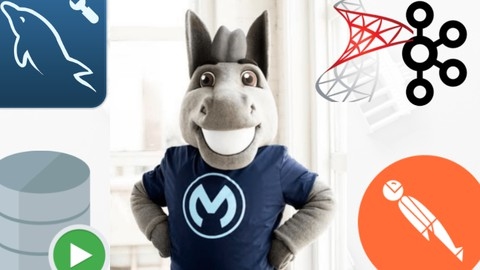MuleSoft is a leading integration platform that empowers businesses to connect their applications, data, and systems seamlessly.
Learning MuleSoft opens doors to exciting opportunities in the world of integration, enabling you to build robust and scalable solutions for a wide range of industries.
Whether you’re a developer looking to expand your skillset or a business professional seeking to understand the power of integration, mastering MuleSoft can provide a competitive edge.
Finding the right MuleSoft course on Udemy can be a daunting task, with countless options available.
You’re searching for a course that goes beyond theory, offering practical experience and hands-on projects to help you solidify your understanding.
For the best overall MuleSoft course on Udemy, we recommend MuleSoft 4.X Complete Guide For Beginners- Hands On Projects.
This comprehensive course covers everything from the fundamentals of Mule ESB integration to advanced concepts like API-led connectivity, equipping you with the skills to become a proficient MuleSoft developer.
The course’s hands-on approach, coupled with its focus on real-world projects, makes it an ideal choice for anyone looking to gain a practical understanding of MuleSoft.
This is just one of many great MuleSoft courses on Udemy.
Keep reading to explore our full list of recommendations and find the perfect course for your journey.
MuleSoft 4.X Complete Guide For Beginners- Hands On Projects
This comprehensive course will equip you with the skills to become a proficient MuleSoft developer.
You’ll embark on a journey starting with the fundamentals of Mule ESB integration, learning how to build Mule applications, debug them, and manage them effectively.
You’ll get hands-on experience with Anypoint Studio, the powerful integrated development environment for Mule applications.
Building upon this foundation, you’ll delve into the world of web services and develop your first Mule app – a RESTful service, leveraging the latest features of Mule 4.x.
The course doesn’t shy away from the intricacies of Mule’s architecture, exploring global elements, connector configurations, and working with multiple flows and configuration files.
You’ll unravel the structure of Mule events and messages, mastering the art of manipulating them using DataWeave, a powerful transformation language that empowers you to shape data with precision.
You’ll learn the importance of variables and how to implement them effectively.
The course then takes you deeper into building RESTful services that interact with databases, teaching you how to perform database operations, such as inserting, updating, and retrieving data, using the Mule database module.
Error handling is a critical aspect of any application, and this course will equip you with the skills to manage errors effectively.
You’ll learn to use on-error-propagate and on-error-continue blocks, raise custom errors, and handle them appropriately.
You’ll also discover how to build a robust global error handler framework to ensure graceful error management across your applications.
Next, you’ll delve into the Anypoint Platform, MuleSoft’s cloud-based platform for managing Mule applications.
You’ll learn how to set up business groups, environments, and users, and how to design and publish APIs using both RAML and OpenAPI (OAS) specifications.
This knowledge will be invaluable as you transition from building individual applications to creating and managing API-driven systems.
The course concludes by equipping you with the skills to deploy your applications effectively.
You’ll learn how to deploy your applications to CloudHub 1.0 and 2.0, and gain expertise in managing and monitoring them in the runtime environment.
You’ll also learn how to configure security policies and create proxies for external services, ensuring that your applications are secure and reliable.
Throughout the course, you’ll explore a wide range of integration patterns, including JMS, file, FTP, and Salesforce integration.
You’ll also delve into advanced concepts like scopes, batch processing, and caching, empowering you to handle complex integration scenarios.
You’ll gain a deep understanding of DataWeave 2.0, building on the fundamentals with advanced functions like flow control, user-defined functions, and date functions.
Finally, you’ll explore MUnit, a powerful testing framework for Mule applications.
You’ll learn how to write comprehensive unit tests for your Mule applications, leveraging MUnit assertions, mocking, and test recorders.
The course covers DevOps principles, guiding you on how to utilize Maven, Git, and Jenkins to automate the build, test, and deployment process of your Mule applications.
You’ll also explore API-led connectivity, learn how to integrate with on-premise systems, and discover how to build real-time applications with Mule.
MuleSoft (Mule4) for Beginners/Developers | Mule ESB | Mule
You’ll embark on a journey from the fundamentals of middleware and integration to advanced concepts like API-led connectivity.
Get hands-on with Anypoint Studio, the powerful IDE for building Mule applications, and learn to debug and run your creations.
You’ll master crucial elements like REST APIs, schedulers, modules, and flows, along with connectors that integrate with systems like databases, Salesforce, and SAP.
The course dives deep into essential routing patterns like Choice, Scatter-Gather, and Batch Processing, equipping you with advanced knowledge of error handling, ObjectStore, and caching.
You’ll explore MuleSoft’s Anypoint Platform, where you’ll learn to deploy and manage applications, delve into features like API Designer, Exchange, and API Manager, and gain a solid understanding of MuleSoft’s architecture.
This course is your comprehensive guide to preparing for the MuleSoft Certified Developer – Level 1 Mule 4 Certification exam.
You’ll gain a thorough grasp of MuleSoft fundamentals, best practices, and invaluable interview preparation tips.
You’ll explore frequently asked questions, and gain valuable insights into the design principles of API-first development.
This course will equip you with the knowledge and skills to confidently navigate the world of MuleSoft integration.
Ultimate Mulesoft Certified Platform Architect Course - MCPA
You’ll begin by establishing a solid foundation, delving into essential API terminology and exploring various operating models.
The course then dives into the platform’s capabilities and deployment options, clearly outlining the differences between MuleSoft-hosted and customer-hosted control and runtime planes.
The curriculum expertly guides you through API modeling and design, emphasizing best practices like documentation and versioning.
You’ll also gain valuable insights into non-functional requirements, including security and performance, and learn how to implement them effectively using tools like Anypoint Security Edge.
The course further explores advanced topics such as Event-Driven Architecture (EDA), showcasing the benefits of utilizing Anypoint MQ for building scalable and responsive systems.
The final sections focus on preparing your APIs for production.
You’ll gain a deep understanding of the development lifecycle, DevOps practices, and crucial testing methodologies, including integration and unit tests.
The course also covers essential aspects of API performance optimization, monitoring, and analytics, empowering you to leverage tools like Anypoint Visualizer to gain real-time insights into your application’s behavior.
While the course provides a robust foundation for Mulesoft Cloudhub architecture, it’s worth noting that supplementary resources may be needed for deeper dives into specific topics or for hands-on experience with real-world deployments.
MuleSoft Certified Integration Architect Course - MCIA
You’ll embark on a comprehensive journey that covers both the theoretical and practical aspects of integration architecture.
Right from the start, you’ll delve into the core responsibilities of an integration architect, establishing a solid foundation for your journey.
You’ll master the art of designing integration solutions using the 4+1 views methodology, ensuring a structured and organized approach.
The course goes beyond theoretical concepts, providing hands-on experience with the Anypoint Platform.
You’ll learn to leverage its powerful features, including configuring business groups, environments, users, roles, and permissions within an organization.
You’ll explore the critical aspects of API design, covering best practices and techniques for crafting efficient APIs.
The course includes real-world case studies like uhub-sapi, aws-sapi, who-sapi, covid-papi, and covid-eapi, allowing you to apply your knowledge to practical scenarios.
The syllabus guides you through the selection of optimal event processing models and design patterns for your integration solutions.
You’ll master the use of the Mule 4 runtime, understanding concepts like non-blocking reactive event processing and thread management.
The course delves into various event processing strategies, including synchronous, asynchronous, and iterative processing, ensuring you have a comprehensive understanding.
Transaction management is crucial for data integrity, and this course equips you with the knowledge to design Mule applications that handle transactions effectively.
You’ll learn about local transactions, XA transactions, and strategies for achieving reliability goals.
Building robust Mule applications requires a strong focus on testing, which is emphasized throughout the course.
You’ll learn about unit testing using MUnit, including mocking, asserting, and utilizing dataweave files.
You’ll also gain expertise in designing blackbox integration testing and performance tests, ensuring your applications are both reliable and efficient.
The course explores different deployment models for Mule applications, including CloudHub 1.0 and 2.0, Fabric, and customer-hosted runtime planes.
You’ll delve into networking and operationalizing integration solutions, covering topics like VPC architecture, setting up VPNs, and allocating static IP addresses.
You’ll gain proficiency in state preservation and management options within Mule ESB, including the use of object stores, VM queues, and file-based persistence.
The course emphasizes designing for high-availability goals by exploring Active-Active clustering deployment models and understanding how to achieve high availability in different runtime planes.
The course guides you through the creation of an efficient and automated software development lifecycle, introducing you to Maven and its role in Mule applications.
You’ll learn how to leverage CI/CD (Continuous Integration and Continuous Delivery) with Jenkins, building automated pipelines for building, testing, and deploying your applications.
Security is paramount, and the course covers various methods to secure your applications, including basic authentication, XML and JSON threat protection, IP allowlists and blocklists, and OAuth.
You’ll also learn performance optimization techniques, such as troubleshooting performance issues, improving module operations, and designing efficient flow processing strategies.
The course emphasizes the importance of designing effective logging and monitoring systems, utilizing the Anypoint Platform Visualizer, configuring monitoring in different runtime planes, and setting up alerts.
To prepare you for the MuleSoft Certified Integration Architect (MCIA) exam, the course includes practice tests to boost your confidence and readiness for the certification.
Become the Ultimate Certified MuleSoft Architect - MCIA/MCPA
You’ll gain a solid understanding of API-led connectivity, a crucial design method that fosters scalability and maintainability within complex systems.
The course delves into the three-layer API design, laying the foundation for building robust and well-structured integrations.
You’ll get hands-on practice with real-world scenarios, making this a valuable resource for building practical skills.
The course explores the intricacies of the Anypoint Platform, from the runtime plane and control plane to various deployment models, ensuring you are comfortable working across diverse environments.
While covering the core fundamentals of MuleSoft architecture, the course also delves into essential integration patterns, such as Publish/Subscribe (Pub/Sub), helping you design efficient and reliable systems.
Furthermore, you’ll learn about DevOps best practices for MuleSoft, including automated deployments using CI/CD pipelines, streamlining your development process and ensuring consistent application updates.
The course also covers important governance concepts like Center of Excellence (CoE) and Center for Enablement (C4E), crucial for standardizing and managing MuleSoft implementations within an organization.
While providing a solid foundation in these areas, it’s important to note that a deep understanding of these concepts might require further exploration beyond the course.
If you are seeking advanced expertise in specific areas, such as DevOps or CoE implementation, additional resources might be necessary to supplement your learning.
Learn Mulesoft: 12 steps to master the development of APIs!
This comprehensive course guides you through the world of Mulesoft and API-led connectivity, equipping you with the skills to build robust and scalable integration solutions.
You’ll begin by understanding the core concepts of Mulesoft and API-led connectivity, exploring software design architectures like SOA and Microservices.
The course then dives into practical aspects, leading you through setting up your development environment with essential tools like Java, Maven, GitHub, Postman, MariaDB, and, of course, Mulesoft itself.
You’ll quickly get hands-on experience by building your first Mule flows using the HTTP Connector.
You’ll learn to create basic flows, manipulate URI and Query parameters, and send HTTP requests within your flows.
The course then introduces you to the powerful Dataweave language, a key component of Mulesoft, where you’ll learn to transform and manipulate data within your flows using its functions, selectors, and lambdas.
The course delves into managing application configuration with property files, specifically YAML and .properties files, showing you how to set up environment properties for different stages like DEV, TST, UAT, and PROD.
You’ll explore the VM Connector, which facilitates communication between different parts of your application using asynchronous and synchronous queues.
Next, you’ll discover how to connect your Mule flows to databases using the Database Connector, learning to read, retrieve, insert, update, and delete data.
You’ll also gain proficiency in working with files using the File Connector, including creating, writing, reading, and moving CSV files.
The course then covers error handling, teaching you how to gracefully manage errors within your applications.
You’ll learn about default error handling behavior, internal error handlers, and how to raise error exceptions.
Finally, you’ll learn about creating and implementing APIs using RAML, a powerful language for describing APIs.
You’ll define resources, methods, data types, requests, and responses within your RAML specifications.
You’ll then import these specifications into Anypoint Studio and implement the logic for your APIs.
The course concludes with deploying your APIs to a Mule runtime engine, either on Cloudhub or on-premise, giving you the confidence to build, test, and deploy your own APIs using Mulesoft.
MuleSoft 4 Fundamentals - Beginner to Expert Level
This comprehensive course will equip you with the fundamental skills needed to develop and deploy robust integration solutions using Mule 4 and the Anypoint Platform.
You’ll start by setting up your development environment and gaining a solid understanding of Mule application structure.
The course then dives into the core of Mule 4, teaching you to connect to external systems using both REST and SOAP web services.
You’ll learn how to trigger flows using schedulers, explore the power of the VM connector for asynchronous communication, and delve into various flow types like subflows, private flows, and flow references.
You’ll gain hands-on experience with the File Connector and learn how to process records efficiently using the For Each scope and the Choice Router for conditional logic.
The course delves deeper into advanced concepts like Scatter-Gather for parallel processing and teaches you how to manage batch processing for optimal efficiency.
You’ll then learn the ins and outs of deployment, deploying your applications to CloudHub, MuleSoft’s cloud-based platform.
You’ll gain a deep understanding of error handling and learn to manage unexpected situations using Mule’s Error Handling mechanism.
The course teaches you how to seamlessly connect to databases, leverage the ObjectStore for key-value storage, and explore advanced concepts like Exchange.
You’ll gain familiarity with the various components of the Anypoint Platform, including Flow Designer, API Designer, and API Manager.
You’ll also learn to create Mule applications that function as SOAP web services.
Finally, you’ll have the opportunity to practice your skills with a final project and prepare for the MuleSoft Certified Developer Level-1 exam through a comprehensive mock exam.
MuleSoft Certified Developer - Level 2 - Preparation Course
You will learn how to manage non-functional requirements like monitoring, reliability, performance, and security for production-ready Mule applications.
The course starts by setting up your local system and backend services, then dives into project structure, deployment strategies, and development best practices.
You’ll master API development, error handling, caching strategies, asynchronous processing, logging, tracing, and validation.
Additionally, you’ll learn about health checks, custom connector development, API policy creation, offline policy management, consuming SOAP web services with TLS certificates, and MUnit testing.
The hands-on exercises and practice tests ensure you gain practical experience, while the course material, including code snippets on GitHub, makes learning seamless.
MuleSoft Developer Level 2 - Practice Exam Walkthrough
If you’re studying for the MuleSoft Certified Developer (MCD) Level 2 certification, this course can help you understand the practice exam questions thoroughly.
You will learn about the topics, concepts, and components covered in the exam through 61 videos that walk through each question and answer.
The course covers explanations of correct and incorrect answers, providing additional context from documentation and demonstrations in Anypoint Studio and the Anypoint Platform.
Key areas include mTLS, DataTypes with RAML, Maven configurations, Exchange, CSV file validation, keystore formats, publishing custom API policies, webhooks, scatter-gather routing, JMS topics, configuring reusable libraries, property files, and more.
The videos systematically approach each question, narrowing down answers to prepare you for the real exam.
Mulesoft | An “In-depth & Extensive” Tutorial for Beginners
This Mulesoft course for beginners provides a strong foundation in the fundamentals of integration.
You’ll gain a solid understanding of how to set up your development environment, create your first HTTP API, and grasp the basics of MuleSoft code.
The course effectively introduces key tools like Anypoint Studio and Postman, equipping you with practical skills from the start.
You’ll delve into core Mulesoft concepts like Dataweave, a powerful language for data transformation.
The course clearly explains how to use different connectors to integrate with various systems, covering database operations, error handling, and messaging structures like ActiveMQ Server.
Testing and deployment are also addressed, giving you hands-on experience with Munit for unit testing and deploying your applications to Cloudhub.
You’ll explore continuous integration and continuous deployment (CI/CD) principles and learn how to utilize Jenkins for automated deployment.
The course further demonstrates how to integrate with external systems like Salesforce using APIs, including a detailed exploration of RAML for designing RESTful APIs.
This comprehensive course covers essential aspects of MuleSoft development.
By completing it, you’ll be equipped with the skills to build integrations, automate workflows, and tackle real-world business challenges.
It’s a valuable starting point for anyone interested in becoming a confident MuleSoft developer.
